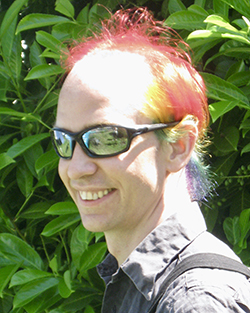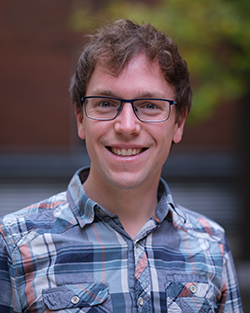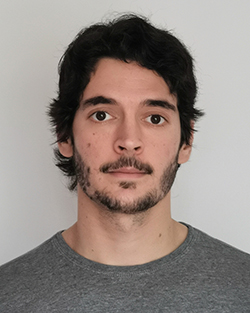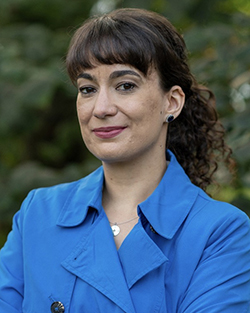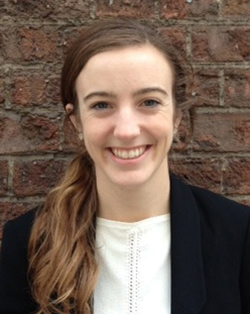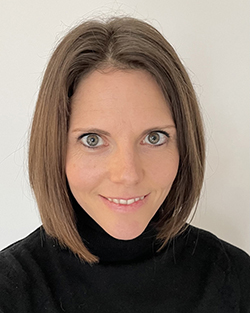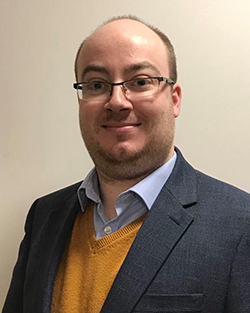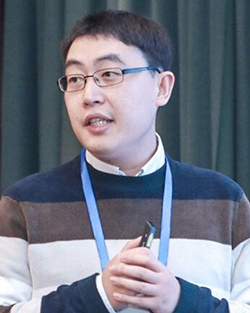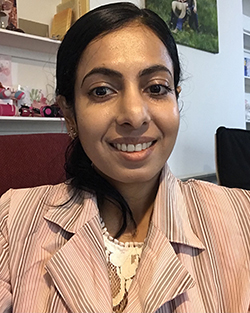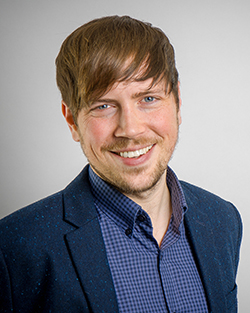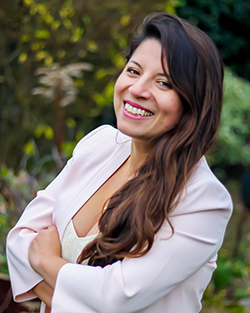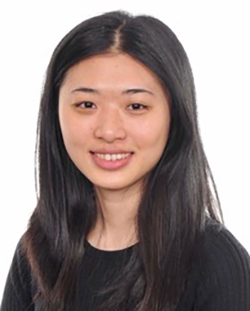|
Dr SJ Beard I am a Senior Research Associate and Academic Programme Manager at the Centre for the Study of Existential Risk. I work on developing new methods to study diverse and unprecedented futures and help coordinate the centre’s communications, fundraising, policy engagement and events. I am also an advisor to the All Party Parliamentary Group for Future Generations, an Affiliated Researcher at Institutet för framtidsstudier, a BBC New Generation Thinker, and an editorial board member of the journal Futures. I have appeared on radio and TV, and written for the BBC, Huffington Post, and Quartz among others. Before joining CSER, I was a postdoctoral research fellow at Oxford’s the Future of Humanity Institute. I have a PhD in Philosophy from the LSE and a BA in Philosophy, Politics and Economics from the Oxford. Alongside working on existential risk, I have published on population ethics, intergenerational fairness, and the history of ideas and have extensive experience across politics and policy-making, including as a researcher in the UK parliament, think tanks, and NGOs and a parliamentary candidate. I have taught moral and political philosophy at Cambridge, the LSE, and VU Amsterdam and supervise students doing high-impact research through the Effective Thesis project.
|
|
|
Dr Andrew Bladon I am a Research Associate working with Dr Lynn Dicks in the Department of Zoology. My research focuses on using species ecology to develop and test actions to conserve threatened species, particularly butterflies and birds, and using evidence synthesis to highlight critical knowledge gaps in conservation. My current projects focus on understanding global trends in and threats to insect populations, and synthesising evidence for interventions to reduce the impact of food systems on biodiversity. The key motivation for my research is always to inform or achieve positive change. I am also passionate about science outreach, and using research stories to engage the general public in nature conservation. During the Borysiewicz Fellowship, I hope to build connections with peers from a range of disciplines, and combine our skills to develop innovative solutions to both human and biodiversity crises.
|
|
|
Dr Alejandro Carnicer-Lombarte I am a Postdoctoral Research Associate currently working in the Electrical Engineering Division, and have a background in the field of Neurosciences. My work combines these two fields. I am interested in developing neural interfaces – implantable devices capable of recording and stimulating brain/nerve activity. These systems can be used to treat a wide range of clinical conditions. I am specifically interested in developing these systems to help spinal cord injury patients. As part of this Fellowship, I would like to develop my understanding of how other partners outside of my research field, such as industry and entrepreneurs, clinicians, and other research disciplines, fit into the world of neural interfaces and can help connect research with the real world. Through this I aim to help build bridges to improve translation of these new treatments from the bench to the patient bedside.
|
|
|
Dr Lorena Escudero I am a particle physicist working on cancer research in the Department of Radiology at the University of Cambridge, and part of the CRUK-funded National Cancer Imaging Translational Award (NCITA). As a particle physicist, I have worked in huge international collaborations in Japan and the US studying neutrino oscillations. I apply my experience in big data science, image analysis and Artificial Intelligence (AI) to make an impact in healthcare. Specifically, I am working on tools for automated tumour segmentation, as well as improving our understanding of tumour heterogeneity and disease prognosis prediction by analysing features extracted from radiological images. I am very passionate about AI, and I recently joined The Alan Turing Institute as a Turing Fellow to discover new ways and impactful areas in which I can make a difference. I am also a Machine Learning consultant for a medical imaging company. In my free time, I am devoted to my other passion: literature. I am an internationally published author seeking to find in fiction a way to disseminate science and reach the widest audience through stories. As a Borysiewicz Fellow, I will shape and pursue my own independent project to make a positive impact on society.
|
|
|
Dr Cassi Henderson My research interest is in the development of accessible and appropriate technologies to improve human health, especially those aimed at challenges faced by the “bottom billion” of the global population. With a background in biomedical engineering, my expertise is in the design and development of medical devices. In my current role as a Research Associate at the Institute for Manufacturing, I am developing improved joint orthoses using 3D-printing to produce biomimetic structures that address limitations of existing devices. Prior to this, I completed my PhD in the Department of Chemical Engineering and Biotechnology at Cambridge, where my work focused on the integration of functional materials, assay development and manufacturing design to enable biosensors to be produced for affordable, rapid, and point-of-care detection of diseases. Alongside my research, I have supported product development activities for a range of technology start-ups centred on healthcare. Outside research, I am passionate about supporting women and girls to pursue careers in the STEM disciplines and am involved in a range of outreach activities to support this. The Borysiewicz Fellowship program will be a unique opportunity to engage with a community of motivated researchers that will assist my growth as a leader in the field of accessible technology for health.
|
|
|
Dr Kathryn Hesketh I am a Senior Research Associate in Behavioural Epidemiology, based at the MRC Epidemiology Unit. Using international cohort data, my current work has a population health focus, providing novel information to inform and encourage positive physical activity behaviour in women during the transition to motherhood, and in children up to 5 years. Following my PhD at Cambridge, I joined the UCL Great Ormond Street Institute of Child Health and was awarded a Wellcome Postdoctoral Fellowship in 2015. This has allowed me to develop productive collaborations internationally and across the UK. In addition to research and teaching, I have a broad interest in policy. I was part of the Chief Medical Officer’s (CMO) Committee for Revising the UK’s Physical Activity Guidelines in under 5s in 2019, and subsequently part of the CMO’s Physical Activity surveillance committee. This Borysiewicz Fellowship affords an exciting opportunity to consolidate and expand my leadership experience, gain practical insight into research innovation and develop a valuable network of peers, hopefully benefitting me both professionally and personally.
|
|
|
Dr James Keeble I am a National Centre for Atmospheric Science Postdoctoral Research Associate working in the Yusuf Hamied Department of Chemistry. I use chemistry-climate and Earth system models to explore the drivers of atmospheric composition change, and the impacts these changes have on global and regional climate. During my research I have explored how stratospheric ozone is projected to recover in the future, and most recently investigated the possible atmospheric composition and climate impacts of a future shift to a hydrogen economy. Both of these research areas have significant policy implications, and I have worked with and written documents for policy-makers which help find solutions to the challenges posed by anthropogenic emissions and changes to Earth’s atmosphere. I am excited at the prospect of working with the Borysiewicz Interdisciplinary Fellows to further discuss and find solutions to these challenges, while continuing to develop my scientific, teamwork and leadership skills.
|
|
|
Dr Xiaoxiang Na I am a Senior Research Associate with the Centre for Sustainable Road Freight at Cambridge University Engineering Department (CUED), where I received my PhD in Driver-Vehicle Dynamics in 2014. My current research focuses on addressing the challenge of decarbonising heavy goods vehicles, which account for 6% of UK greenhouse gas (GHG) emissions. I am working on developing hardware and software tools for monitoring vehicle operations in-service, measuring vehicle energy consumption and GHG emissions, and assessing the performance of existing and emerging vehicle decarbonisation technologies. My outside activities include serving as an Associate Editor for IEEE/CAA Journal of Automatic Sinica, and as the Deputy Secretary-General for a technical committee in the Chinese Association of Automation. I also provide supervisions to CUED undergraduates on dynamics and vibrations, and conduct engineering admissions interviews for Lucy Cavendish College. Through the Borysiewicz Fellowship, I hope to develop and sharpen my interdisciplinary skillset and mindset to progress towards my goal of making the world’s road freight environmentally, economically and socially sustainable.
|
|
|
Dr Sam Nallaperuma I am a Postdoctoral Researcher at the FOCSLab, Department of Engineering, University of Cambridge. My current research within the EPSRC Transnet project includes applications of artificial intelligence and optimisation techniques to improve network performance in terms of efficiency and energy consumption in optical networks. My collaborative works with the University of Exeter, City Science and University of Sheffield have contributed in improving energy efficiency and reduce carbon emissions in road and rail transport networks. Within academia, I contribute as the communications and intelligent systems postdoctoral theme lead for the Electrical Engineering Division, the Cambridge representative for Transnet virtual laboratory, and as a reviewer, programme community member and workshop organiser for academic conferences and journals. Outside academia, I contribute to the wider community as a co-founder of Sumithra, a charitable foundation to support the education of school students from disadvantaged backgrounds and to achieve net zero carbon goals through collaborates with Cambridge Zero. Through the Borysiewicz Fellowship I aim to develop my research and charitable programmes further and collaborate with the Fellows to support other research, entrepreneurial and charitable projects.
|
|
|
Dr Christoph Nehrbass-Ahles I am a Postdoctoral Research Associate at the Department of Earth Sciences at the University of Cambridge working on innovative method development for high-precision ice core gas measurements. Presently, I am part of the WACSWAIN ERC advanced project aiming to assess the stability of the West Antarctic Ice Sheet and its potential for catastrophic sea level rise in the coming centuries. I completed my PhD in physics at the University of Bern, where I focussed on reconstructing the atmospheric CO2 concentration of the distant past based on tiny bubbles trapped in Antarctic ice. As a Borysiewicz Fellow, I look forward to expanding my network of peers and collaborating with a truly diverse group of researchers across disciplines. I am enthusiastic about making long term, sustainable impact on the way we are approaching the world’s climate crisis, and looking forward influencing the next generation of climate scientists. I am hoping that the Fellowship will help me build on my leadership skills to do this.
|
|
|
Dr Clarissa Rios Rojas I am a science diplomat, a government science advisor and, currently, a Research Associate at the Centre for the Study of Existential Risk (University of Cambridge). I conduct research on the risks coming from emerging technologies and also build science-policy interfaces that can provide scientific evidence and advice to different policy stakeholders. I focus on a variety of topics such as foresight, international security, bio and AI risk, co-creation of policy and management of Global Risks. I hold a PhD in Molecular Biology (Australia), a Masters in Biomedicine (Sweden) and a Bachelors in Biology (Peru). I would like to build a community of practice during the Fellowship that supports me to build my own team working on Science Diplomacy at the University of Cambridge or at the United Nations.
|
|
|
Dr Xiaolei Zhang I am a human geneticist aiming to advance healthcare using computational and statistical approaches. I completed my PhD degree at Imperial College London, where I developed widely applicable computational methods to improve the genetic diagnosis of rare diseases. As a Postdoc Fellow at the European Bioinformatics Institute with Professor Ewan Birney, I analyse biobank-scale genome data to infer demography history within human populations, which could help us uncover the significance of historical migrations and the impact of genetic ancestry on health. Apart from my academic research, I have actively contributed to community building to support graduate students, including being a postgraduate representative for the Faculty of Medicine and co-founding a genetic society in Imperial College. As a Borysiewicz Interdisciplinary Fellow, I plan to explore challenges and solutions to translate genome medicine research to benefit underrepresented populations.
|

